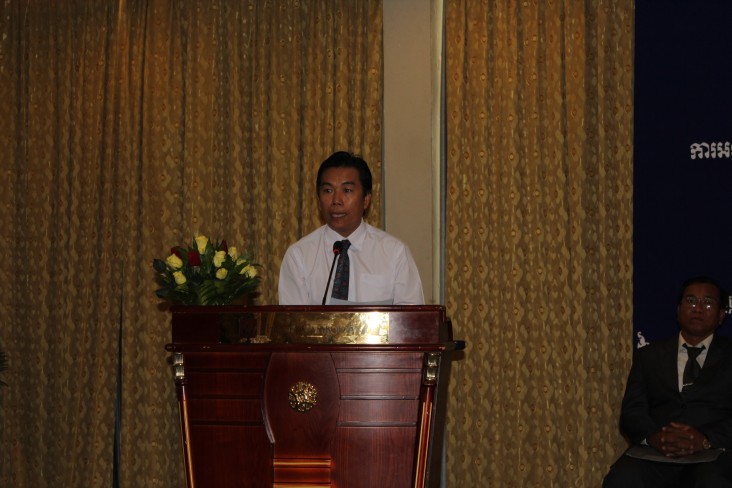
Your Excellency Im Koch, Secretary of State, Ministry of Education Youth and Sport
Excellencies, distinguished guests, ladies and gentlemen:
It is my great pleasure to welcome all of you today to “Dissemination Workshop on the Guideline on the Implementation of the Early Warning System and Computer Lab Interventions.” Our collaboration is based on our shared goal to reduce school dropout and give every child in Cambodia the opportunity to complete his or her basic education.
The U.S. Agency for International Development, which I represent, is an important supporter of education around the world. Education is a pathway to better opportunities for every person, their community, and their nation.
Through the School Dropout Prevention Program (SDPP), USAID is working closely with the Ministry of Education to achieve Cambodia’s Millennium Development Goal: Universal Access to Basic Education by 2015. The SDPP program supports the Ministry’s policy on Preventing Student from Dropout of School and Information Communication Technology in education, which calls for access to ICT for all teachers and students, especially at the secondary level.
SDPP is a multi-country program, funded by the USAID, aimed at mitigating student dropout from secondary schools in Cambodia. SDPP has two interventions: Early Warning System (EWS) and Computer Labs (CL) and they are working with 215 schools across six provinces in Cambodia. In both 2012/13 and 2013/14 academic year, nearly 60,000 G7-9 students benefited from the program/receiving some or all of the treatments from EWS or CL interventions.
The program works directly with 7th, 8th and 9th grade students, teachers and community groups such as Parent-Teacher Associations to actively reduce school dropouts and give children a better opportunity for their future. EWS helps schools to identify at-risk students, track and provide “preliminary response” to the at-risk students while CL is providing basic computer skills to students.
From what I know, SDPP program team has been working hard with the target schools, communities and relevant stakeholders to mitigate student dropouts. To ensure sustainability for the program, the team has worked with MoEYS’s Coordination Body to develop a sustainability plan called ‘Guideline on Implementation of EWS and CL Interventions.’ The guideline outlines roles and responsibilities of all relevant stakeholders from the school to MoEYS’s national levels in order to sustain all activities of the EWS and CL interventions at the school. The Guideline is also to extend to schools in Kampong Cham, Kratie and Siem Reap provinces under the support of Improved Basic Education in Cambodia (IBEC), where computer labs were installed.
Today’s event is to disseminate the “Guideline” to all relevant stakeholders in order to sustain the two interventions after the end of the program. Following this workshop, the SDPP program team will organize the policy dialogue workshops on the sustainability and expansion of EWS with MoEYS and relevant stakeholders.
On behalf of USAID, I would like to extend my special thanks to Your Excellency, Creative Associates colleagues who have travelled from the U.S., Education Ministry officials, the Provincial Education officials and school directors for your presence and participation in the Dissemination Workshop on the Guideline today. I also would like to thank KAPE as the implementing agency who has working hard and being USAID partner for many years. I hope the schools, communities and relevant stakeholders will still continue implementing SDPP program after the program ended.
Thank you very much.
Related Speeches
- Remarks by Polly Dunford, Mission Director, USAID Cambodia, Launch Event of Feed the Future Cambodia Harvest II
- Remarks by Christina Lau, Deputy Director, Office of Public Health and Education, USAID/Cambodia, Opening Ceremony of the Kick-Off Workshop for “One Health Workforce”
- Remarks by Veena Reddy, Deputy Mission Director, USAID Cambodia, EPIC Showcase







Comment
Make a general inquiry or suggest an improvement.